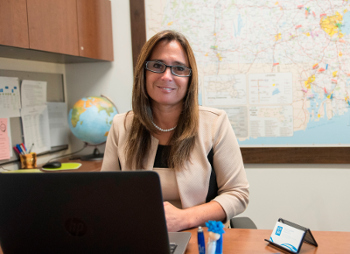Do you have a question about JRI services?
Meadowridge Academy offers comprehensive treatment to adolescent males and females with mental health issues, behavioral difficulties and complex trauma histories through the use of individualized care and strengths based, trauma informed treatment. We use the evidenced based treatment model- ARC to help students build positive relationships, learn self regulation skills, and transform their individual interests into sources of strength, resiliency and success.
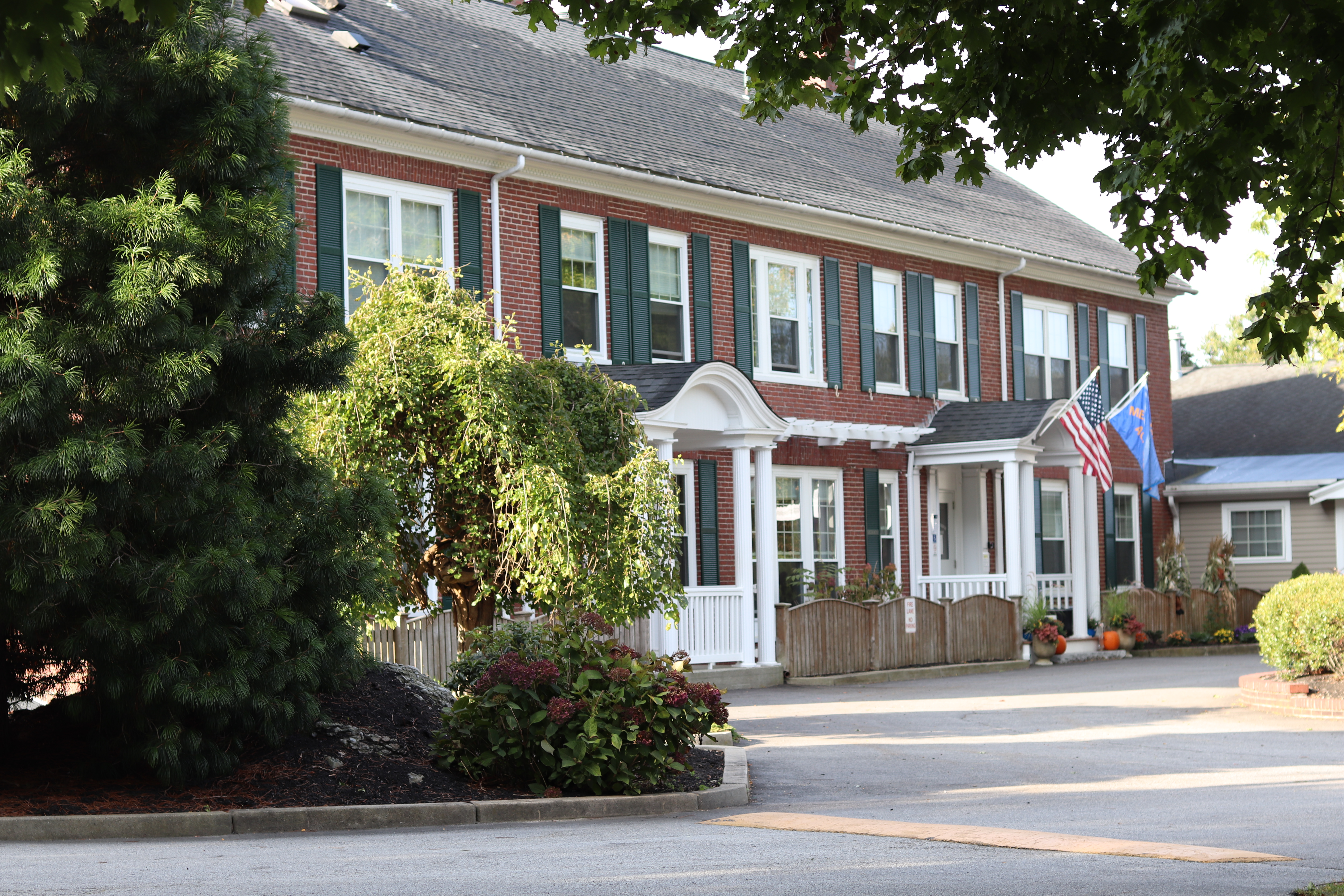
Swansea, MA 02777

Meadowridge Academy is a comprehensive therapeutic residential school located on 6.2 acres in rural MA. Students range from low to average and high cognitive functioning, and may have learning disabilities as well as medical fragility. Meadowridge Academy strives to make a positive difference in the lives of our students through individualized care and strengths based, trauma informed treatment. We use the ARC model to help students build positive relationships, learn and practice self regulation skills, and transform their individual interests into sources of strength, resiliency and success. We partner with families and communities to meet each student's individual needs while providing endless opportunities for exploration, growth and independence. We provide comprehensive treatment through a multidisciplinary team approach that includes clinical, educational, vocational, residential, psychiatric and nursing services. Our unique focus on sensory regulation, vocational training and animal assisted interventions are integral in the success of our students.

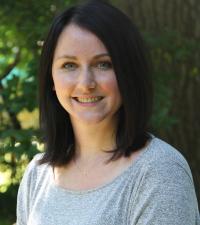
Erin Lunn began her career with JRI as a clinician at Meadowridge Academy after receiving her master’s degree in clinical social work from Simmons School of Social Work. In this role, Erin provided trauma informed care to young people and their families. Erin has built upon her passion working with families and has discovered a newfound interest in animal assisted therapy. She has developed upon her skills supporting clinicians and interns through their work with students and families, which has led Erin to the role of Clinical Director. Today, Erin is the Assistant Director at Meadowridge Academy.
Margaret Maiato joined JRI as the Director of Education in April 2018. She has spent her professional career working in special education in both the public and private school settings. She sought a position at Meadowridge Academy out of her desire to make a difference in the lives of students who have experienced trauma and empathy for adolescents with invisible disabilities.
Margaret received her Bachelor Degree in Special Education from Lesley University. She earned a Masters and Certificate of Advanced Graduate Studies in School Administration at Bridgewater State University. Her goal is to increase student learning through building confidence in the classroom, maximizing student’s strengths, and teaching to their interests and learning style.


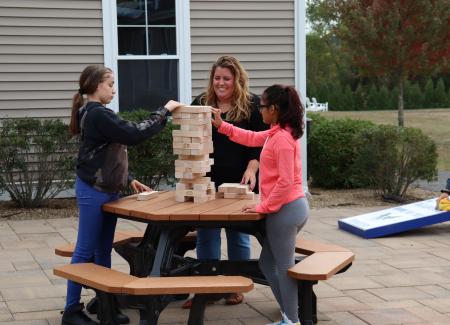
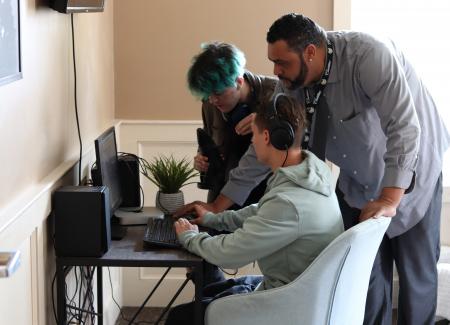
Students attend school on campus, year round and have a full day of academic and vocational training. While the curriculum is challenging, modifications are made to meet the individual needs of each student and classrooms are designed to be small with additional academic support and assistance. In addition to the academic curriculum the students enjoy physical education, life-skills and vocational training in woodworking, animal care, horticulture and expressive arts.
Universal Design for Learning (UDL) was selected as the academic model for The Meadowridge Schools as it closely mirrors our clinical Model, ARC. Both models emphasize understanding and supporting each student’s unique needs while also showcasing their strengths in order to help them maximize their potential. Our flexibility and planning allow us to cultivate an environment that supports our students in feeling a sense of safety and trust in their relationships, which supports emotion regulation and engaged learning.
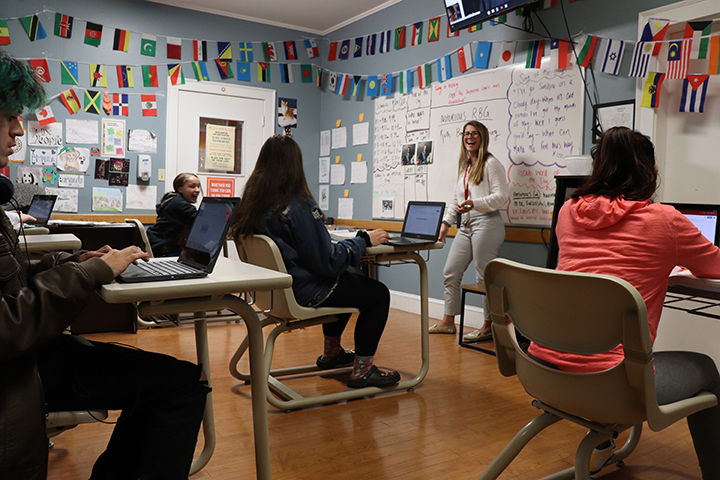
Meadowridge Academy offers intensive and individualized clinical services and interventions. Through the ARC model, Clinicians help students build positive attachments, self regulation skills and competency. Clinicians utilize a variety of trauma informed techniques, including Sensory Motor Arousal Regulation Treatment (SMART), which is an evidence-based practice, Neurofeedback, Dialectical Behavioral Therapy (DBT), and Animal Assisted Interventions (AAI) to guide students in processing trauma history and developing positive skills to manage difficult emotions.
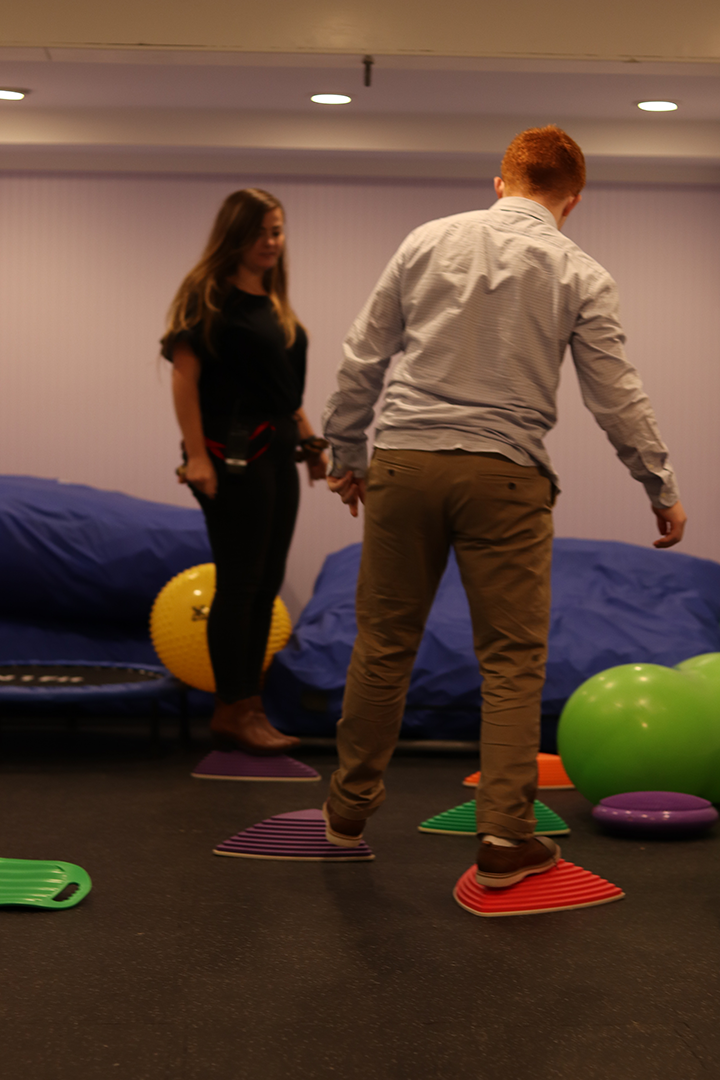
At Meadowridge Academy, we are dedicated to nurturing students' unique interests and talents, fostering their development into areas of expertise. Our comprehensive competency programs, reminiscent of those found in traditional school settings, encompass a wide range of activities including sports programs, prom and field trips. We also offer off-campus vocational experiences through internships, apprenticeships and volunteer opportunities that enrich our students' educational journey.
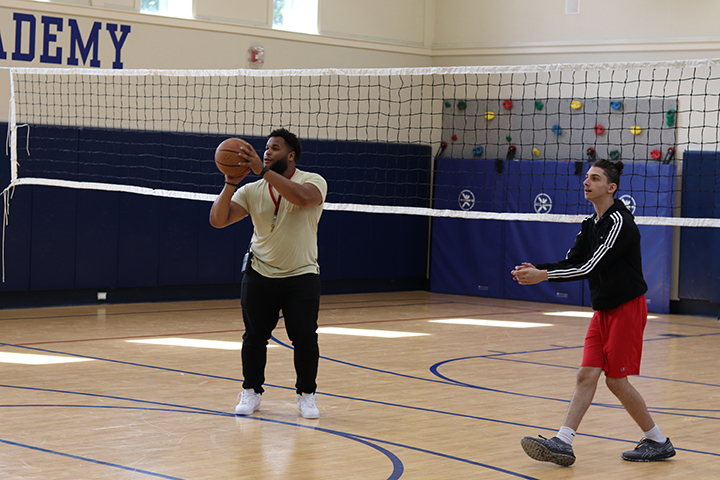

Meadowridge Academy students have the unique opportunity to engage in parallel work through use of the animals on campus. Research shows that adolescents who experienced developmental trauma have significant difficulty accessing their frontal lobe due to it being underdeveloped. Through use of the animals on campus, students are able to self and co-regulate their energy and emotions, and slowly bring their frontal lobes back online. Simultaneously, students strengthen vocational and self-care skills and begin to develop a positive sense of self through building responsibility by working with the animals. For Meadowridge Academy students who have limited interpersonal skills and lack the ability to engage in traditional talk therapy session, parallel work is incorporated during session where students discus their emotions through the animals. This provides Clinicians the opportunity to engage in trauma-focused interventions to build off of these statements and provide the students with better clinical treatment. In addition, we have a dog park with dog trainers on site as part of both our vocational and clinical services.
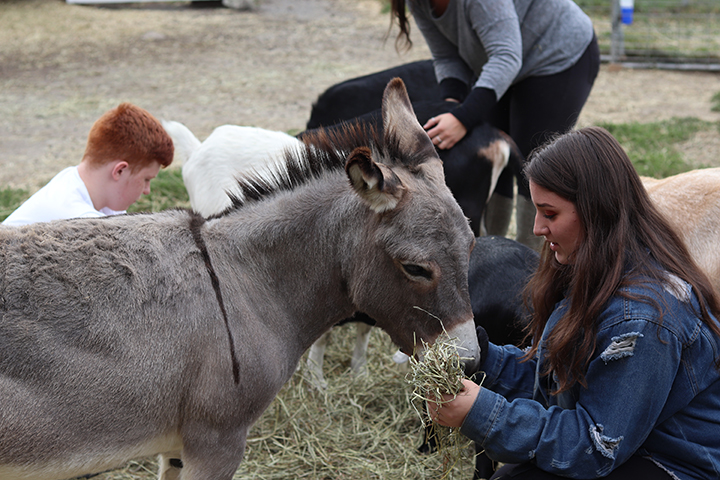

Request More Information
